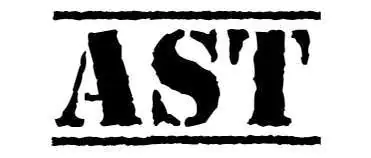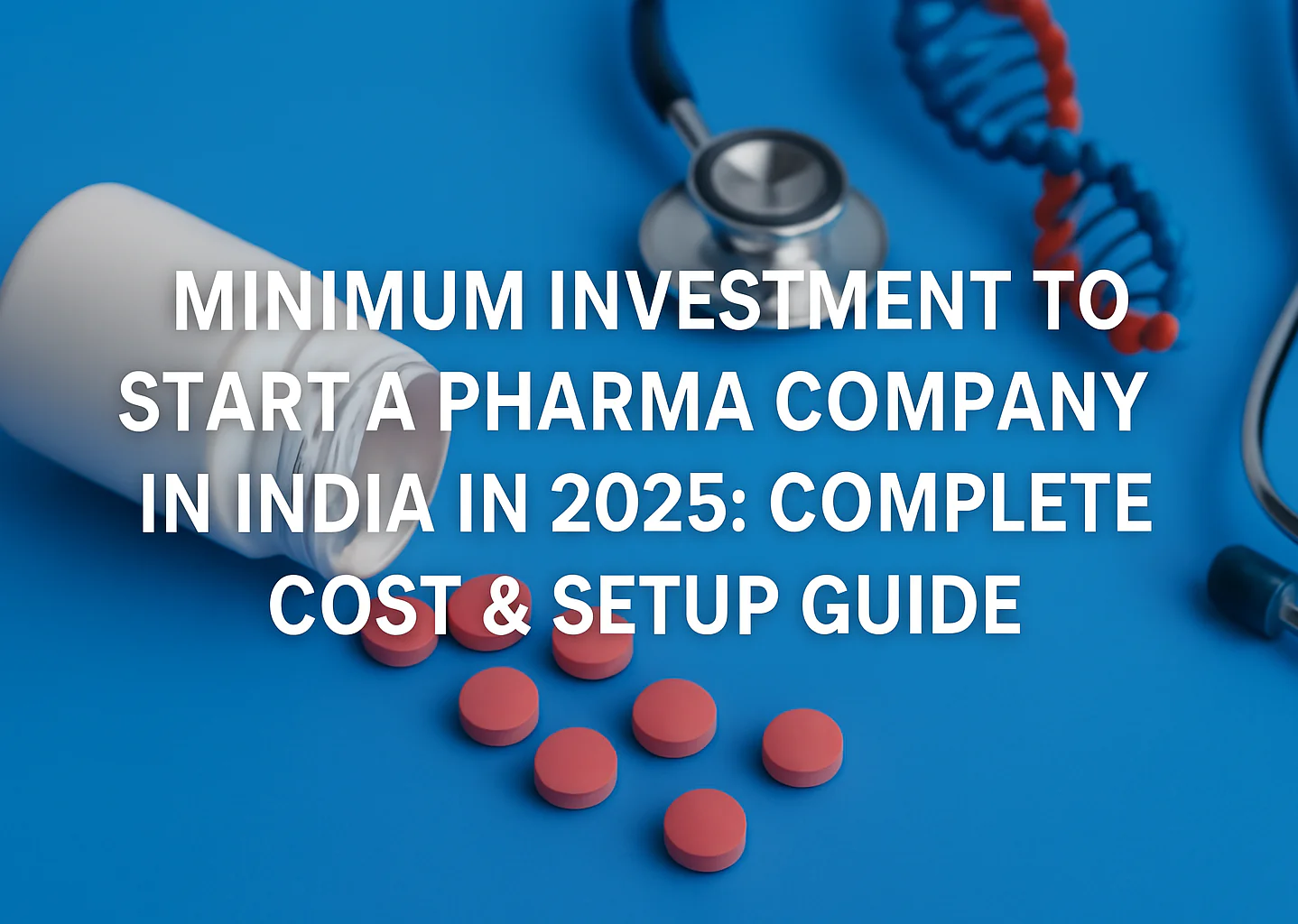Beginning a pharmaceutical business in India has the potential to be an exhilarating yet difficult experience. It is imperative to have an in-depth grasp of each cost element because the minimum investment to start a pharma company in India differs greatly depending on the scale of business and product range. This guide helps break out the costs from legal compliance and infrastructure to the in-depth and complex machinery, manpower, and working capital calculations so that you can make sound decisions and launch your business successfully.
Table of Contents
1. Understanding the Pharma Landscape in India
India’s pharma industry is well known for a plethora of reasons, but the most important one is the manufacturing of generic drugs and cost-effective research. It constitutes a little under 5 percent of the global pharmaceutical output in 2024 to 2025, and over ten percent in value terms. Coupled with the low cost of manufacturing, the skilled workforce, and the positive government stance towards the Indian pharmaceutical industry, makes India is a focal point for the domestic as well as the export market.
India has the potential to be a global pharmaceutical powerhouse. Even the most rudimentary formulation unit comes with challenges. These challenges range from strict compliance with regulatory norms to understanding the minimum investment to start a pharma company in India. The subsequent sections provide in-depth details of each critical investment area.
2. Legal and Regulatory Costs
2.1 Company Registration
- Private Limited Company: INR 6,000–8,000
- Partnership or LLP: INR 2,000–4,000
- GST Registration: INR 0, but INR 1,000–2,000 for some consultants.
2.2 Drug License Fees
- Manufacturing License (Form 25/27): INR 5,000–10,000
- Wholesale License (Form 20/21): INR 1,000–5,000
- Import/Export License: INR 2,000–3,000
Pharmacist Qualification & Experience: INR 25,000–35,000 monthly salary for a qualified pharmacist.
Pro Tip: For statutory approvals and professional consultancy fees, set aside INR 50,000–75,000.
3. Land and Infrastructure
3.1 Land or Factory Lease
- Plot Size: 500–1,000 sq. meters
- Lease Deposit: INR 5–10 lakh
- Annual Rent: INR 1–2 lakh
Alternatively, these might be available in Pharma SEZs at Industrial plots at lower prices and higher tax benefits.
3.2 Civil Construction
- Basic Construction (walls, flooring, partitions): INR 800–1,200 per sq. ft.
- Office Space & Utilities: INR 5–10 lakh
- Total Infrastructure Cost: Small-scale units estimate INR 20–30 lakh.
4. Machines and Equipment
The type of machinery needed determines the minimum investment amount for commencing a pharmaceutical company in India. One of the important machinery for a formulation unit is:
Equipment | Approximate Cost (INR) |
Tablet Press Machine | 8–15 lakh |
Capsule Filling Machine | 4–8 lakh |
Blenders & Mixers | 3–6 lakh |
Fluid Bed Dryer | 6–10 lakh |
Validation & Lab Equipment | 10–15 lakh |
Packaging Line | 10–20 lakh |
Total | ~₹50–75 lakh |
Note: Operation costs tend to rise when machinery is leased.
5. Consumables and Raw Materials
The active pharmaceutical ingredients (APIs) and excipients, Packaging materials, and Laboratory reagents are important and must be obtained initially. For small-scale production:
- APIs & Excipients: 5–10 lakh
- Packaging Containers & Leaflets: 1–2 lakh
- Laboratory Reagents: 1 lakh
Set aside 8–12 lakh to maintain stock for the first 3–4 months.
6. Human Resources and Other Operating Costs
6.1. Important Staff
- Production Manager: INR 50,000–70,000 monthly
- Quality Control Head: INR 40,000–60,000 monthly
- Chemists and Lab Technicians (3–4): INR 20,000–30,000 each
- Support Staff: INR 15,000–20,000 each
- Total Monthly Estimate: 2.5 – 3.5 Lakh
6.2. Utilities and Maintenance
- Electricity and Water: INR 30,000–50,000 monthly
- Maintenance for Equipment: 50,000 every 3 months
- 5 Costly Investment Mistakes to Avoid for Long-Term Success
- What Is the Minimum Investment for an IPO in India?
7. Marketing, Branding, and Distributing
Marketing and sales have a crucial role Marketing and sales have a crucial role. Other initial expenses:
- Brand Registration and Logo Design: INR 50,000
- Promo Materials and Samples: 2 – 3 Lakh
- Website: 1 – 2 Lakh
- Distributor Margins and Incentives: 10-15% of sales value
Initially set aside 5 – 7 Lakh for the first year to build brand recognition.
8. Start-Up Capital
Pharmaceuticals have long credit cycles, meaning delays in payment, and during that time, businesses have to cover expenses like salaries, rent, and raw materials.
Start Up Capital: 20 – 30 Lakh
This serves as a reserve to mitigate cash-flow issues and enables seamless functionality.
9. Possible Sources of Funding
- Self-Funding/Bootstrapping
- Bank Loans (PSB or Private banks) – These may require some form of collateral.
- Angels and VCs Registered with SEBI – These would be suitable for businesses with rapid growth potential focused on R&D.
- Government Policies and Financial Aid
Choosing the proper mix can lower costs for dilution and interest by optimizing equity.
10. Calculating the Total Minimum Investment
In summary, the cost breakdown to establish a small-scale formulation pharmaceutical company in India is as follows:
Cost Component | Estimated Investment |
Legal & Licenses | ₹0.5 lakh |
Land & Infrastructure | ₹25 lakh |
Machinery & Equipment | ₹60 lakh |
Raw Materials & Consumables | ₹10 lakh |
Manpower & Operational Expenses | ₹15 lakh (quarterly) |
Marketing & Distribution | ₹6 lakh |
Working Capital | ₹25 lakh |
Total | ~₹1.41 crore |
Note: Starting small scale, a conservative estimate of 1.2-1.5 crore is required to establish a pharma company in India. Costs can be trimmed if contract manufacturing is used, where financing starts at 50 lakh.
11. Strategies to Make Your Investment Go Further
- Start with the PCD/ Franchise Model: Access the market easily and scale with time.
- Choose SEZ/ Industrial Parks: Tax reductions with additional infrastructure aid.
- Machinery Purchase vs Lease: Leasing cuts initial costs.
- Partner with CMOs: Contracted manufacturing organizations ease CAPEX hurdles.
- Bulk Pricing for API: Discounted rates on raw materials through batch purchases.
- Government Subsidies: Take advantage of the “Make in India” initiatives and pharma subsidies.
Conclusion
Starting a pharma company in India depends on multiple aspects like the business model, scale of operations, and the product line. For a modest scale formulation unit, budget around INR 1.2–1.5 crores, which includes: legal fees, infrastructure, machinery, consumables, marketing, and workforce. To minimize expenses, consider forming strategic alliances, utilizing government subsidies, and planning for gradual expansion. With accurate planning, understanding the cost breakdown, and a well-thought-out, funded roadmap, you can set up and scale your pharma company in India with ease.




